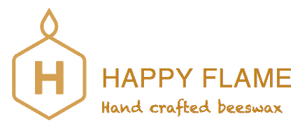‘No National Organic Standard’, says Minister for Agriculture. What does this mean for organics in Australia?
It’s been a doozy of a time for the Australian organic industry. In a bitter twist, the Federal Minister for Agriculture, Murray Watt, discarded years of plans to introduce domestic regulation on organics, ignoring his panel of industry experts and thousands of Australian organic farmers and producers.
What does this mean for you?
Currently, Australia has no mandatory domestic standard, or even a single legal definition, of the term ‘organic’. This means that any producer can label a product ‘organic’, even when they are not entirely organic. Companies greenwash their products, spending more time and money on marketing themselves as ‘organic’ (environmentally friendly, healthy, sustainable etc.) than producing an actual organic product. It’s a deceitful marketing strategy that intentionally misleads consumers seeking authentic organic foods and services free from synthetic chemicals such as pesticides, fertilisers, genetically modified (GM) components or irradiation. Plenty of brands greenwash! And last week, our federal government effectively endorsed this practice, arguing that domestic regulation would create a cost that would be passed on to consumers, justifying its decision to scrap the move. However, the organics industry, and the government’s own expert panel, say otherwise. If domestic regulation were implemented, they say, prices would stay the same for companies already using certified organic ingredients.
At its core, the government’s decision is about supporting companies and big businesses that continue to benefit from greenwashing consumers with pretty packaging and alluring marketing strategies, wanting to avoid burdening them to become compliant. Without this regulation, anyone can continue to market themselves as 'organic' without following the same standards as certified organic producers. This means consumers are blindsided and confused about what they buy when they want organic products.
What does this mean for Australian-certified organic producers?
Australia is an export-based nation, and agricultural exports are a significant driver of our economy. By failing to support a national organic standard, the government continues to make it difficult for organic producers and farmers to export. Many countries do not recognise the current organic credentials of our producers even when they have certifications from trusted and independent bodies here in Australia. This means it costs organic producers significantly more to export because they face increased compliance costs in meeting the requirements of multiple overseas markets. Producers and farmers will continue to get their products certified in all the countries they ship to. A national organic standard would help remove trade barriers, open up and unlock valuable overseas markets, and give our domestic consumers more security and confidence in purchasing genuinely organic products.
Further, it's also disappointing that Australia had the opportunity to join global organic producers in playing a critical role in shaping a more sustainable, safer and better world for all and chose not to take this path.
The irony of this decision is that it comes at the same time New Zealand's parliament formally passed a bill to create a national organic standard. This leaves Australia as the only developed country without organic regulation, behind the United States, the European Union, Canada, Japan and now New Zealand.
What should you look for if you want a guarantee of purchasing organic products under current regulations?
Continue to look for the Australia Certified Organic bud logo. At Happy Flame we give your the choice to have your candles made from 100% certified organic beeswax (ACO No. 12538). This means we do not use chemicals at any stage of our manufacturing process and includes annual audits by an independent third-party auditor to ensure full compliance with the Australian Organic Standard (this may consist of product sample testing, a risk-based assessment of manufacturing activities, and maintaining an auditable trail of all products sold.
Any other questions about our organic process can be found here in our FAQ's.



